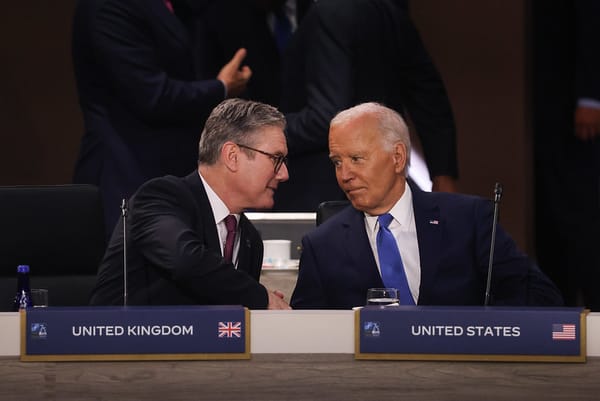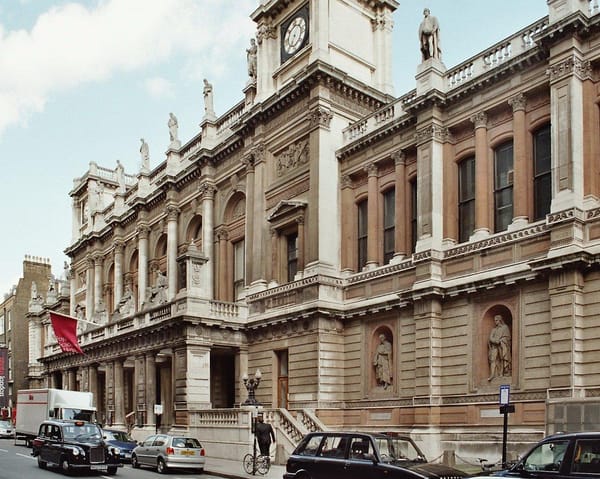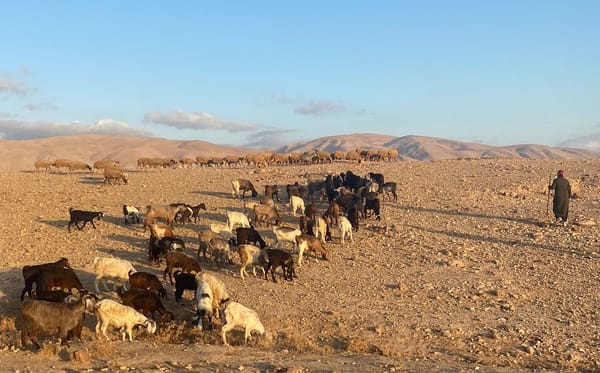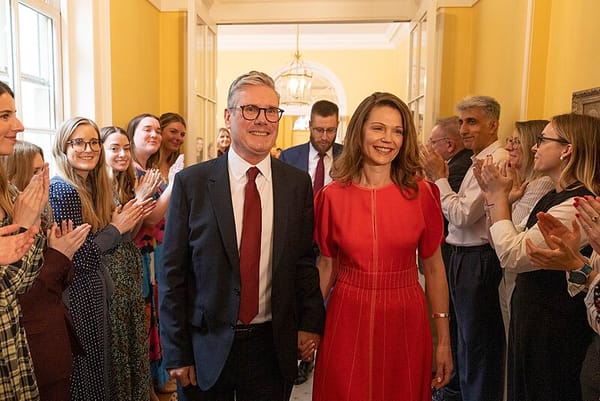A night of Talmudic theatre
Heimishe theatre, heimishe woes.
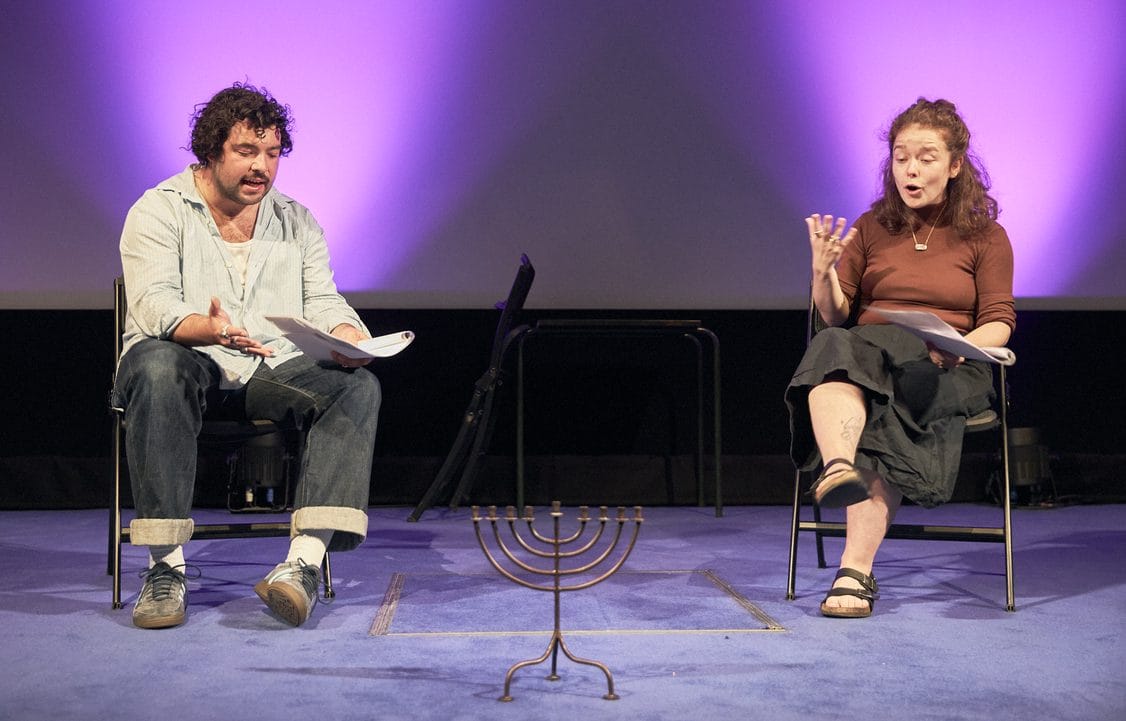
Identity is a complex thing to unpack, and for minority groups often presents a dual artistic impulse. On the one hand, to reject the narrative tropes and expectations that permeate our cultural landscape, on the other, to seriously tackle these subjects, which we return to so often precisely because they’re unavoidable.
How do we tell stories of the pogroms and the Shoah, for example, while remaining aware of the fact that people love dead Jews? How do we grapple with the need to make work about Israel, yet assert that the actions of a foreign government have nothing to do with us?
When there are so few Jewish stories told, each one is liable to become de facto a statement of who we are, and what concerns us. The one authorial voice becomes broadly representative, whether it seeks to or not.
So, Dan Wolff and Sam Thorpe-Spinks’ decision to run an event like Emanate is a welcome salve. By juxtaposing the work of six writers, the pieces are naturally bound together, but the multiplicity of authorship resists any one takeaway. You might even say that Emanate is a little Talmudic in its approach: it asks questions, holds space for their discussion, and embraces difference.
Yet there are, of course, commonalities. Hanging over each piece is a sense of threat – sometimes explicit, sometimes implied, but always there. A sense that your continued presence here is contingent, and could be revoked at any moment.
And that, ironically, is something the Kiln knows all about.
“Starting a quarrel is like opening a floodgate” (Proverbs)
Back in August 2014, when it was still known as the Tricycle, the theatre (which also houses a cinema) was due to host the UK Jewish Film Festival (UKJFF) – something it had done successfully for the past eight years.
But the festival was part-funded by the Israeli embassy, and that summer had seen some of the deadliest military action in the Gaza Strip for decades. The IDF launched a devastating six-week offensive of air strikes and ground invasion after the kidnapping and murder of three Israeli teenagers by Hamas affiliates.
In light of the war, the Tricycle stipulated that the festival should return the Israeli embassy’s financial contribution as a condition of the event going ahead. In the words of then-chairman of the board, Jonathan Levy:
Given the present situation in Israel-Palestine, and the unforeseen and unhappy escalation that has occurred over the past three weeks, including a terrible loss of life, the Tricycle cannot be associated with any activity directly funded or supported by any party to the conflict.
Despite the theatre offering to make up the shortfall in funding, the UKJFF wasn’t willing to return the money to the Israeli embassy, and withdrew from its collaboration with the Tricycle.
Cue a protest outside the theatre from British Jews who felt they were being unfairly punished for the actions of the Israeli military, and a raft of articles questioning whether or not this constituted antisemitism. Some thought it hypocritical for The Tricycle to accept funding from the UK government, given their track record of staging plays about contemporary British war crimes, including an excoriating multi-part response to the war in Afghanistan: The Great Game.
The theatre’s management eventually backed down, apologised, and ever since have been working to rebuild trust with Jewish people locally and nationally.
“Don’t dwell on the past. Look! I’m doing a new thing” (Isaiah)
In a strange echo, rehearsals for Emanate took place in the context of more (“pre-emptive”) Israeli airstrikes in Gaza, and more retaliatory rockets. Wolff and Thorpe-Spinks don’t list the Israeli embassy among their funders, so the Kiln wasn’t forced into a replaying of its history – although, in a good bit of irony, Emanate wasn’t staged in the theatre auditorium, but in the cinema from which the UKJFF was barred.
As it happens, Israel barely gets a mention in the plays comprising Emanate (apart from in Nick Cassenbaum’s subversive, hilarious and gleefully violent After the Lavoiya – more on that soon), and it is rather anti-semitism that takes centre stage.
Five out of the six plays somehow deal with the manifestations of this ancient prejudice. It’s there in an AI system’s potentially violent desire to identify Jews by name and appearance (Richard Katz’s 46 Jews). It is present in the fear that it was a neighbour who daubed racist graffiti on the porch (Alexis Zegerman’s YID). It constitutes the background to a strange plot to do away with the Labour leader (After the Lavoiya), and provokes both a Twitter-warrior’s compulsive arguments (Daniel Goldman’s The Jew) and the urgent need to train a new generation who can counter these threats in digital spaces (Amy Rosenthal’s A Quiet Voice).
The outlier is Ryan Craig’s 0.43%, which deals the most literally with the question of Jewish identity and how it is changing. In it, a Jewish man learns that he is not, in fact, as Jewish as he thought: a DNA test reveals that his genetic Jewishness amounts to barely half a percent, whilst his best friend is fully Ashkenazi. Despite a fully kosher upbringing and “aggressively Jewish” appearance, his identity is stripped away from him in an instant.
“What has been done will be done again. There’s nothing new under the sun” (Ecclesiastes)
It is also 0.43% which, for me, most fully encapsulates something else that’s shared by all the plays: a desire to somehow bring together past and present. As the unnamed character becomes both Jewish and not, the whole history of a lifelong friendship predicated on shared identity is undone – yet the charged space between the characters attests to the continued weight of the relationship. All is as it was, but everything is different.
This slippage of time can be found across the other plays too. In The Jew, the experiences of a modern woman fighting anti-semitism online and an eighteenth century Jewish boxer are first established as parallels, then become ever further enmeshed as dialogue and events echo and overlap. YID performs a similar trick, presenting a scene first in contemporary London, then transposing, translating and replaying it almost word-for-word in a past Berlin. Time is also actively disjointed in the near-future 46 Jews, the fifteen scenes of which Katz says can be performed in any order.
Only in After the Lavoiya is change embraced. The image of 1930s fascist-fighting gang The Yiddishers is refracted in Cassenbaum’s depiction of contemporary East End violence – but this time they are united against a perceived threat from the Left, and have the help of some unexpected collaborators. This act of reinterpretation and re-contextualisation feels to my mind the most truthful approach to the questions underpinning contemporary Jewish identity. It acknowledges that, whatever similarities we may find with past experiences, neat parallels and historical shortcuts perhaps disguise the particularities of now and even distract us from the more complex task of finding new ways to articulate and enact our Jewishness in the changed circumstances of today.
It is sometimes, however, tough not to make these comparisons, when so much of contemporary Jewish experience – from the conjuring of Egypt through the symbolic foods eaten at Seder to the intergenerational trauma of the Shoah – is rooted in such slippages, elisions and simultaneities of the past-made-present. Every new exile – literal or metaphorical – is interpreted in the context of all those that came before: a cyclical inheritance that cannot help but colour our lived experience.
Our political lives even now replicate the hope and terror of ancestors who’ve been dead for millennia. And every year, as we say “next year in Jerusalem” we sit in the liminality of a diasporic and scattered people, re-enacting the rituals that both sustained and incriminated previous generations, reaffirming our hope for a promised life that never comes.
When people ask me what it is to be Jewish, what comes to mind is invariably: “They oppressed us, we overcame, let’s eat”. What makes this work as a joke is, of course, the twist – the surprise of its third beat. But it’s also political: it refuses victimhood, and instead emphasises community, and the jolt of the unexpected. It’s an acknowledgement of, yet separation from, what’s come before – creating the possibility for something different.▼
Tommo Fowler is a Sheffield-based dramaturg and a director. He is Literary Associate of the Women’s Prize for Playwriting, and his next project is Jews In Their Own Words, at the Royal Court Theatre.

